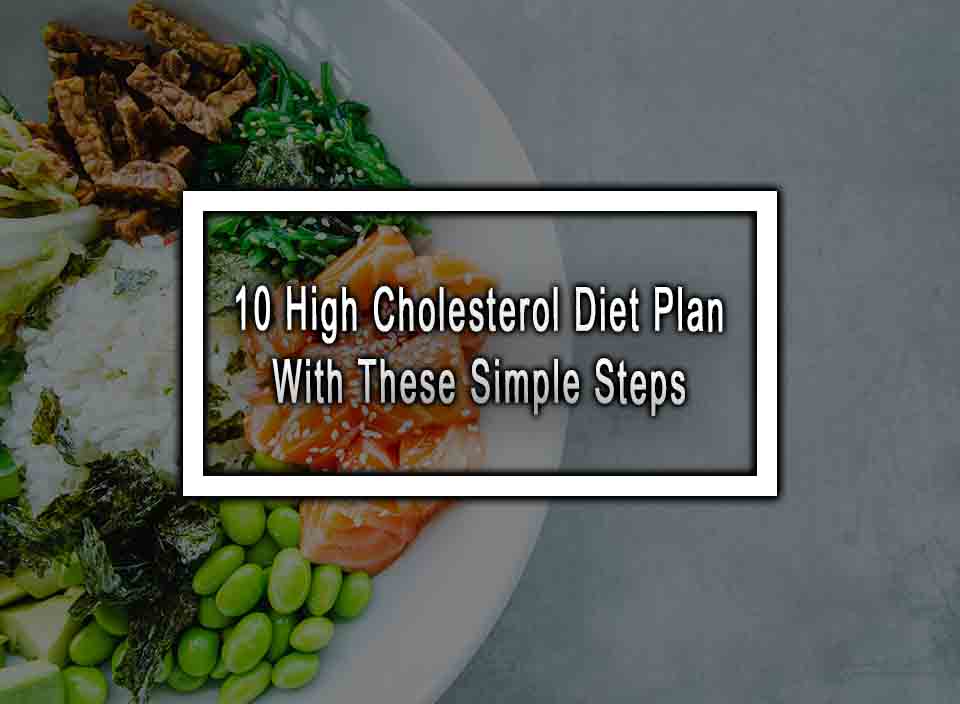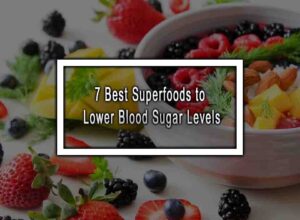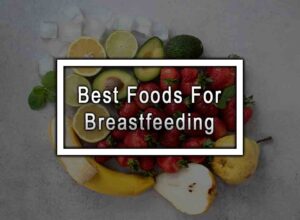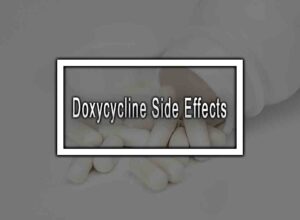High Cholesterol Diet Plan: Unlock the Secrets to a Heart-Healthy Diet
When it comes to managing high cholesterol levels, a well-balanced diet plays a crucial role. Incorporating specific foods and making a few lifestyle changes can greatly help reduce cholesterol and protecting your heart health. In this engaging article, we present to you 10 effective tips for a high-cholesterol diet plan that will not only assist in lowering your risk but also make your taste buds dance!
1. Fill Your Plate with Fiber-Rich Foods
Start your cholesterol diet plan by incorporating fiber-rich foods like whole grains, fruits, and vegetables. These nutrient-dense options help prevent the absorption of cholesterol in your intestines and promote overall heart health.
2. Say Yes to Heart-Healthy Fats
Not all fats are bad! Opt for heart-healthy fats found in olive oil, avocados, fatty fish, and nuts to keep your cholesterol levels in check. These fats are known to increase the “good” HDL cholesterol while decreasing the “bad” LDL cholesterol.
3. Limit Saturated and Trans Fats
Saturated and trans fats can raise your LDL cholesterol, increasing the risk of heart disease. Cut back on foods like red meat, full-fat dairy products, fried snacks, and commercially baked goods containing hydrogenated oils.
4. Make Friends with Omega-3 Fatty Acids
Omega-3 fatty acids are renowned for their heart-protective qualities. Include fatty fish like salmon and sardines, flaxseeds, and chia seeds in your diet to get a healthy dose of these essential fats.
5. Embrace Lean Protein Sources
Opt for lean protein sources like skinless poultry, legumes, and tofu instead of red meat to maintain a healthy cholesterol profile. These options are low in saturated fat and high in essential nutrients.
6. Choose Low-Fat Dairy Alternatives
Dairy products can be high in saturated fats. Switch to low-fat or fat-free alternatives like skim milk, yogurt, and reduced-fat cheese to support your high-cholesterol diet plan without compromising flavor.
7. Be Mindful of Added Sugars and Refined Carbohydrates
Excessive consumption of added sugars and refined carbohydrates can negatively impact your cholesterol levels. Reduce your intake of sugary drinks, processed snacks, and white bread, opting for whole-grain alternatives.
8. Diversify with Plant Sterols
Plant sterols or stanols, are plant compounds that help reduce LDL cholesterol levels. Incorporate foods fortified with plant sterols, such as certain margarine and orange juice, into your daily routine.
9. Spice Up Your Life with Herbs and Spices
Enhance the taste of your meals while promoting heart health with herbs and spices. Add flavorful options like garlic, turmeric, cinnamon, and ginger, which have cholesterol-lowering properties.
10. Stay Hydrated with Green Tea or Red Wine
Green tea and red wine contain antioxidants that may help raise HDL cholesterol levels. Enjoy a cup of green tea or a glass of red wine in moderation to complement your high-cholesterol diet plan.
Conclusion
By following these 10 effective tips, you can embark on a high-cholesterol diet plan that is both tasty and heart-healthy. Remember, a well-balanced diet, coupled with an active lifestyle, is key to reducing your risk of heart disease. So, get ready to taste the victory over cholesterol and embrace a healthier, happier life!
High Cholesterol Diet Plan FAQs
Here are the most common questions about high-cholesterol diet plans.
1. Why is it important to follow a high cholesterol diet plan?
High cholesterol levels in the blood can increase the risk of developing heart disease and other cardiovascular conditions. Following a high cholesterol diet plan can help lower cholesterol levels and improve overall heart health.
2. What foods should I avoid on a high cholesterol diet plan?
Foods to avoid on a high cholesterol diet plan include saturated fats found in red meat, full-fat dairy products, fried foods, and processed snacks. Trans fats found in some margarines, commercially baked goods, and fried foods should also be avoided.
3. Can I still eat eggs on a high cholesterol diet plan?
In the past, eggs were generally recommended to be limited for individuals with high cholesterol due to their high cholesterol content. However, more recent research suggests that dietary cholesterol in eggs may not have a significant impact on blood cholesterol levels for most people. It is recommended to consume eggs in moderation as part of a balanced diet.
4. How long should I follow a high cholesterol diet plan?
A high cholesterol diet plan should be followed long-term to maintain healthy cholesterol levels. It is a lifestyle change rather than a short-term solution. Consult with a healthcare professional to determine the most appropriate duration for your specific situation.
5. Should I take supplements while following a high cholesterol diet plan?
Supplements may be recommended by healthcare professionals in some cases. However, it is generally best to obtain nutrients through a balanced diet rather than relying solely on supplements. Discuss your specific needs and concerns with a healthcare professional to determine if supplements are necessary for you.












